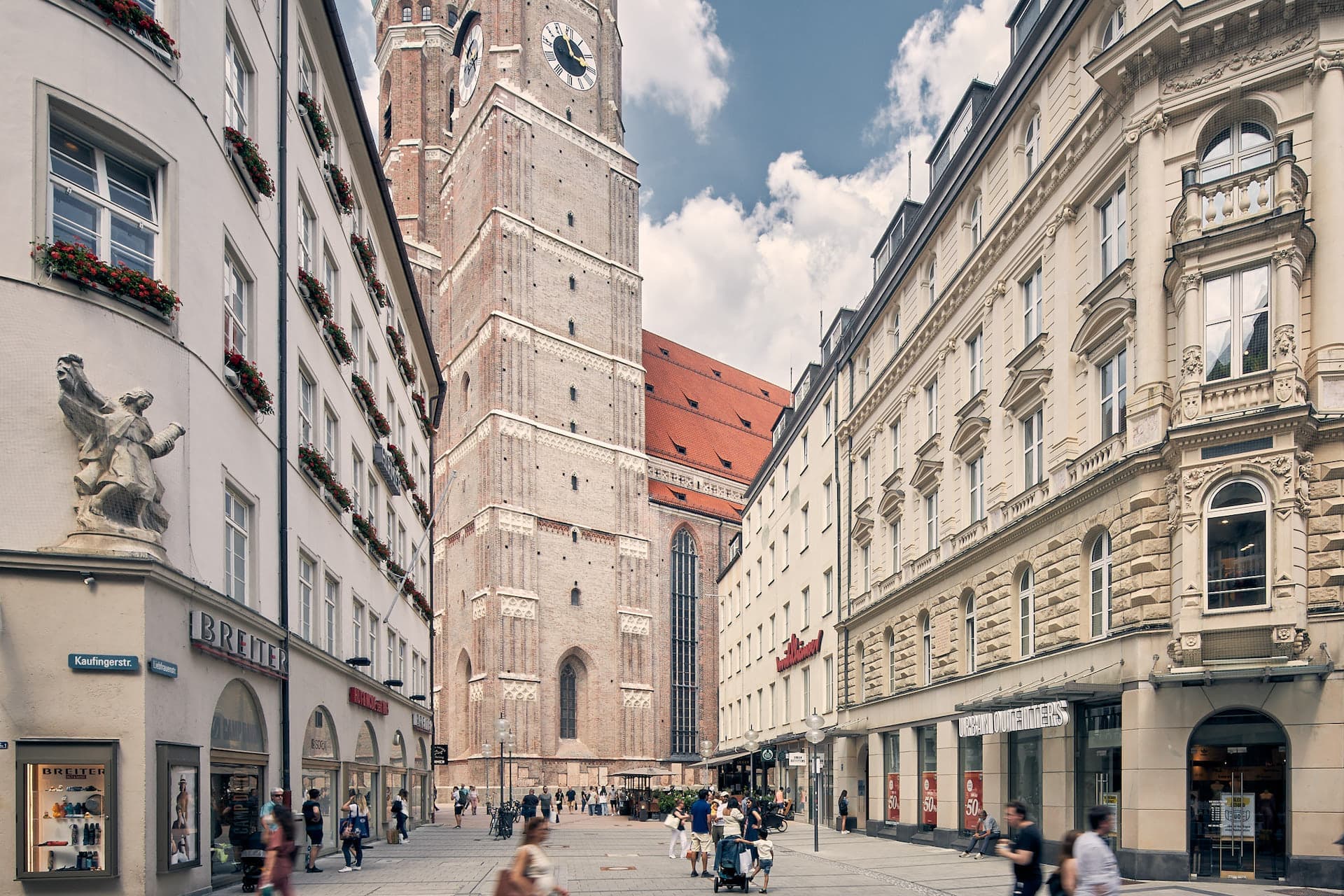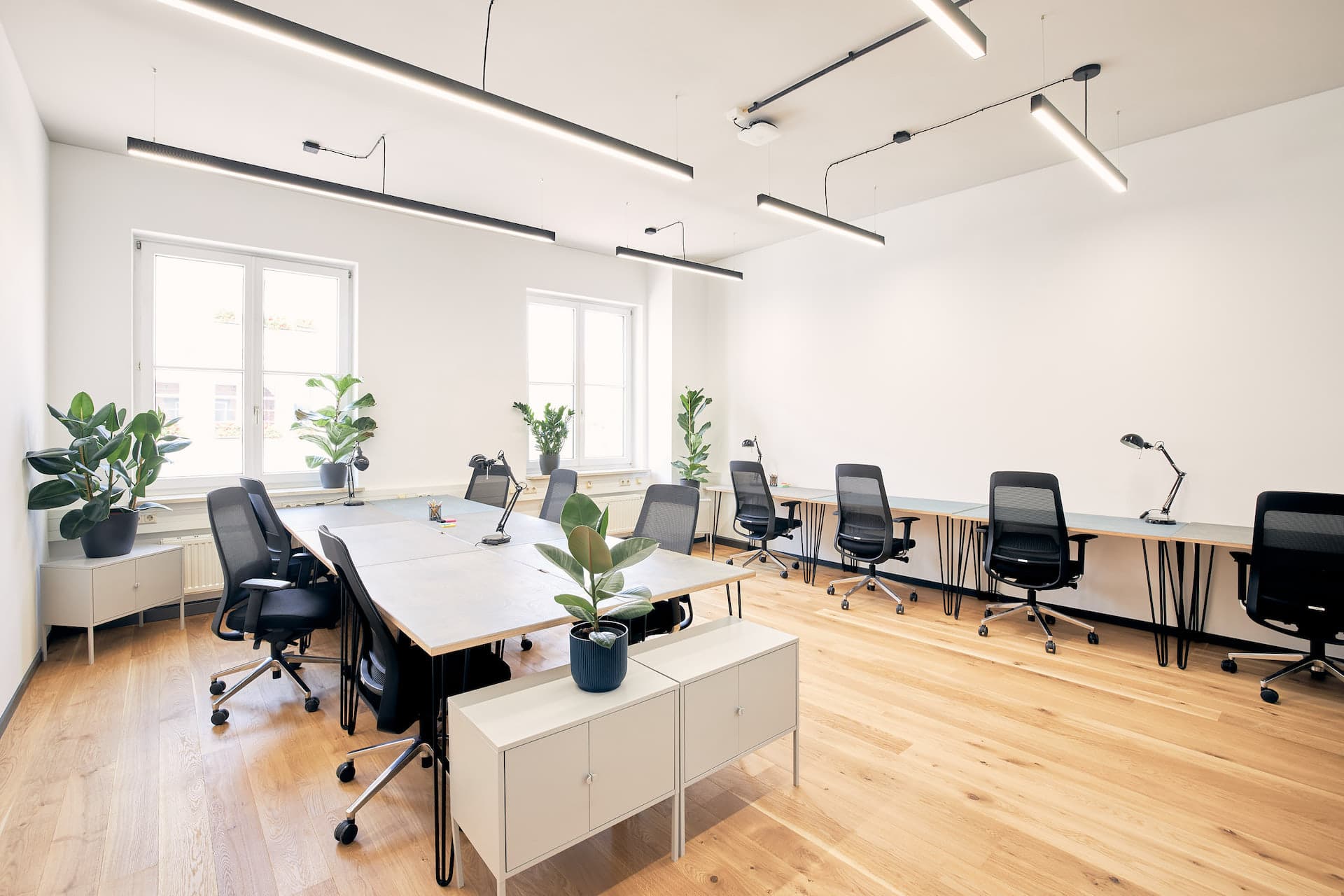New Work in Munich: Germany’s new startup hub?
September 9, 2024

5 min

Munich is increasingly becoming one of the most significant startup hubs in Germany, and has become a magnet for innovative thinkers and New Work companies. The city itself, with its mix of tradition and modernity, provides a unique setting for business founders and new, growing companies. There are many reasons why Munich has become attractive for startups and the New Work scene, yet locating a business in this city along the Isar river also has its challenges. Why are startups increasingly choosing Munich as the base of their operations? Can Munich perhaps even topple Berlin as the “startup capital city” of Germany?
A growing magnet for companies since the 2010s
For the first time in 2022, more startups were founded in Munich than in Berlin. According to figures in a report by the German Startup Association, there were per 100,000 residents 15.5 startups founded in Munich, compared to just 13.5 in Berlin. Even though this changed once again in 2023, it still indicates that Munich is a desirable location for German startups and New Work companies. Munich didn’t initially come onto the map as a magnet for startups in 2022 – many have been increasingly flocking to the city in the south for the past ten or fifteen years, with a notable increase especially in the early 2010s. Many Factors contribute to Munich’s popularity with startups: the growing emphasis placed on digitalization and technological development, excellent support structures for startups, the ready availability of venture capital, the presence of successful Munich startups like Flixbus and Celonis, and the good quality of life the city provides.
What opportunities does Munich’s startup ecosystem offer?
Munich’s startup ecosystem is diversified and is growing steadily. StartupBlink currently lists 627 Munich startups in its database, which comprises 14% of the total amount of startups in Germany, making Munich the second strongest startup ecosystem in Germany following Berlin. There are numerous incubators, accelerators and coworking spaces which support startups and make it easier for fledgling businesses to get up and running. In addition, there are programs such as Munich’s Technical University UnternehmerTUM, a center which supports startups and founders through all development stages – from concept development to entering the market – with a focus on innovation and entrepreneurship. An important component of the ecosystem is the availability of venture capital. Munich has the ability to attract investors who are eager to invest in promising startups. For new companies, this financial support is crucial for their growth and further development, especially since the venture capital market, according to KPMG, has declined in recent years due to geopolitical uncertainties and high inflation. Being in close proximity to established companies and research institutes also gives startups an opportunity for collaboration and sharing of knowledge with others. Munich is also known for its high quality of life and cultural diversity, drawing talented people from all over the world, which is of great importance for a company’s innovative capacity and ability to compete.
Affordable office space: A key challenge in Munich
However, there are challenges that startups and New Work companies face in Munich, and one of the largest is finding affordable housing and workspaces. The rental prices for office space have risen considerably in the last few years, presenting many new companies with a significant financial burden. In 2018, the average rental rate for office space in Munich was 18.65€ per square meter, whereas companies currently pay on average 24.79€ per square meter when renting office space, according to Statista. The high demand for office space and the limited amount of space available in the city have led to a price increase which is proving to be a hurdle for many startups and New Work companies. The shortage of affordable office space means that many new companies have to rely on creative solutions to cover their space requirements.
Unicorn Workspaces in Munich: New Work solutions for Munich-based startups and companies
Flex office providers such as Unicorn Workspaces help startups and companies in Munich solve the problem of finding affordable office space in the city by offering flexible and cost-efficient alternatives to traditional offices. Unicorn’s flex office concept allows startups to concentrate on their core activities while working in a New Work environment, without having to worry about getting locked into long rental agreements or paying high overheads. Unicorn Workspaces has three locations in Munich: Am Isartor (at the city’s famous medieval gate), Kaufingerstrasse and Ostbahnhof (near the train station Munich East). These three workspaces provide all-inclusive offices with flexible terms and cost-effective pricing, plus many convenient services are already included, such as a Barista-style coffee flat rate. Each location features fully-equipped team offices available in various sizes at affordable prices: 450€/per desk at Unicorn Kustermannpark, 600€/per desk at Unicorn Isartor, and 650€/per desk at Unicorn Kaufingerstrasse.

Will Munich become Germany’s next startup capital city?
Due to its location in an economically strong area, high quality of life and growing network of supportive business services, Munich has established itself as one of the leading startup hubs in Germany, offering New Work companies numerous advantages. Despite some challenges – especially when it comes to securing affordable office space – Munich will continue to be an attractive setting for innovative startups pursuing success. Will Munich become the next “startup capital city” of Germany? Munich has not yet taken over the lead when it comes to the number of startup company foundings. Berlin still maintains its position as the leading startup hub in Germany and is well known for its large, richly diverse pool of entrepreneurs. Munich, though, has also been significantly progressing in the past few years and has earned a name as one of the most important locations for startups in Germany. However, this development shouldn’t be viewed in the startup world as a competition between the two cities, but rather as an enrichment for the German startup scene itself